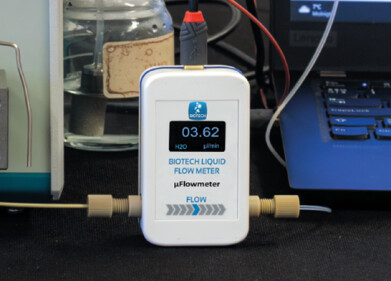HPLC, UHPLC
Unlocking the Potential of Organic Modifiers in Reversed-Phase Liquid Chromatography
Jul 18 2023
Reversed-phase liquid chromatography (RPLC) has been a cornerstone technique in analytical chemistry for several decades, enabling the separation and analysis of a wide range of compounds. It has proven invaluable in various fields, including pharmaceuticals, environmental analysis, and food science. Over the years, researchers have strived to optimise RPLC methods by exploring different parameters and modifiers. Among these modifiers, organic solvents have emerged as powerful tools, offering enhanced selectivity and efficiency. This editorial explains the significance of organic modifiers in RPLC and emphasises their potential to revolutionise chromatographic separations.
Enhanced Selectivity: The choice of organic modifiers significantly impacts the selectivity of RPLC separations. Traditional modifiers, such as methanol and acetonitrile, have long been used due to their compatibility with the stationary phase and mobile phase systems. However, recent advancements have expanded the range of available organic modifiers, allowing chromatographers to tailor separations to specific analytes and applications.
Organic modifiers bring distinct physicochemical properties that can be exploited to fine-tune selectivity. For example, the use of organic modifiers with varying polarities can facilitate the separation of complex mixtures, enabling the resolution of closely eluting peaks. Furthermore, the addition of organic modifiers allows for the manipulation of hydrophobic interactions, hydrogen bonding, and π-π interactions, enabling the separation of structurally similar compounds that were previously challenging to resolve.
Improved Efficiency: Efficiency is a crucial aspect of any chromatographic method, and organic modifiers play a vital role in enhancing this parameter. By modulating the mobile phase composition, chromatographers can optimise analyte retention and elution profiles, resulting in improved peak shapes and reduced analysis time. Organic modifiers can also mitigate issues such as tailing or fronting peaks, leading to sharper and better-defined chromatographic peaks.
Additionally, the use of organic modifiers can enhance mass transfer kinetics within the chromatographic system. This results in improved peak capacity, allowing for the separation of a higher number of components within a given time frame. The ability to analyse complex samples more rapidly not only saves valuable resources but also improves laboratory productivity.
Expanded Application Range: The versatility of organic modifiers in RPLC has expanded the application range of this technique. Chromatographers can now effectively separate and analyse a diverse array of analytes, including polar and nonpolar compounds. By judiciously selecting the appropriate organic modifier, RPLC can accommodate a broad spectrum of samples, ranging from small molecules to large biomolecules.
Moreover, the compatibility of organic modifiers with mass spectrometry (MS) detection further broadens the horizons of RPLC. Many modern RPLC-MS systems utilise volatile organic modifiers that are compatible with electrospray ionisation (ESI) or atmospheric pressure chemical ionization (APCI) sources. This compatibility allows for seamless hyphenation of RPLC with MS, enabling sensitive and selective detection of analytes in complex matrices.
Challenges and Future Perspectives: While organic modifiers offer significant advantages in RPLC, challenges remain. The cost of high-purity organic solvents and their disposal can be a concern, particularly when large-scale separations are involved. Furthermore, the choice of organic modifier should be carefully considered to prevent issues such as stationary phase degradation or irreversible changes in separation behaviour.
Looking ahead, the exploration of novel organic modifiers and the development of innovative stationary phases will likely continue to drive advancements in RPLC. Furthermore, the integration of artificial intelligence and machine learning algorithms may aid in the selection of optimal organic modifiers for specific separation goals.
Organic modifiers have emerged as indispensable tools in modern RPLC, offering enhanced selectivity, improved efficiency, and expanded application range. By judiciously selecting and manipulating organic modifiers, chromatographers can achieve higher resolution, faster analyses, and improved separation performance. As the field progresses, a deeper understanding of organic modifiers and their interactions with stationary phases will undoubtedly unlock new possibilities in reversed-phase liquid chromatography, revolutionising the way we analyse complex mixtures and paving the way for ground breaking discoveries.
More information online
Digital Edition
Chromatography Today - Buyers' Guide 2022
October 2023
In This Edition Modern & Practical Applications - Accelerating ADC Development with Mass Spectrometry - Implementing High-Resolution Ion Mobility into Peptide Mapping Workflows Chromatogr...
View all digital editions
Events
ACS National Meeting - Fall 2024
Aug 18 2024 Denver, CO, USA
Sep 04 2024 Chiba, Tokyo, Japan
Sep 04 2024 University of Warwick, Coventry, UK
Sep 10 2024 Rockville, MD, USA
Plastics Recycling World Expo Europe
Sep 11 2024 Brussels, Belgium














